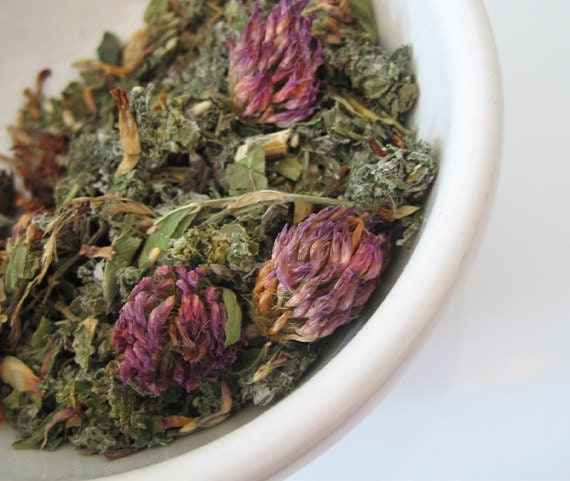Disclaimer: The author of this site is not Doctor or medical certified professional, the information presented here is for informational purposes only and should not be taken as medical advice.
Cold Season is Back
and with a Vengeance
Here's a little something to you through the snotty times.
The Blessing's of Elder Berry and Flower
 Also known as
Also known as
Sambucus spp (Nigra for berries and Canadensis for flowers) American Elder, Common Elder, Black Elder, Bour Tree, and European Black Elder.
Introduction
European elder is a plant native to Europe, Northern Africa, and Western-and Central Asia. Its flowers and berries have a long history of use in traditional European medicine. Elder berries have also been used for making preserves, wines, winter cordials, and for adding flavor and color to other wines. Native Americans used the flowers, berries, and bark of elderberry trees to treat fevers and joint pain for hundreds of years, but elderberry's real claim to fame is as a cure for the flu. Israeli researchers have developed five formulas based on elderberry fruit that have been clinically proven to prevent and ameliorate all kinds of influenza.
Constituents
Potassium nitrate, sambucin, sambunigrin, sugars. The complex sugars of the berries are the immune-active fraction.
Parts Used
Most commonly the flowers or berries. Dried fruits are less bitter than fresh. The branches and leaves are poisonous. The small stem which is sometimes left on the berry is safe.
Typical Preparations
Teas, tinctures, encapsulations, syrups, wine, cordials, and even ketchup, often combined with propolis or echinacea.
Summary
 Extensive research show that elder stop the production of hormone-like cytokines that direct a class of white blood cells known as neutrophils to cause inflammation, especially in influenza and arthritis. On the other hand, elder increases the production non-inflammatory infection-fighting cytokines as much as 10 fold. Elder berries are known to be effective against eight strains of influenza. This suggests that elder be superior to vaccines in preventing flu, because flu vaccines are only effective against known strains of flu, whereas the virus is continually mutating to new strains. Vaccines have another draw back: over half of people who get them report side effects. Dr. Madeleine Mumcuoglu, of Hadassah-Hebrew University in Israel found that elderberry disarms the enzyme viruses use to penetrate healthy cells in the lining of the nose and throat. Taken before infection, it prevents infection. Taken after infection, it prevents spread of the virus through the respiratory tract. In a clinical trial, 20% of study subjects reported significant improvement within 24 hours, 70% by 48 hours, and 90% claimed complete cure in three days. In contrast, subjects receiving the placebo required 6 days to recover.
Extensive research show that elder stop the production of hormone-like cytokines that direct a class of white blood cells known as neutrophils to cause inflammation, especially in influenza and arthritis. On the other hand, elder increases the production non-inflammatory infection-fighting cytokines as much as 10 fold. Elder berries are known to be effective against eight strains of influenza. This suggests that elder be superior to vaccines in preventing flu, because flu vaccines are only effective against known strains of flu, whereas the virus is continually mutating to new strains. Vaccines have another draw back: over half of people who get them report side effects. Dr. Madeleine Mumcuoglu, of Hadassah-Hebrew University in Israel found that elderberry disarms the enzyme viruses use to penetrate healthy cells in the lining of the nose and throat. Taken before infection, it prevents infection. Taken after infection, it prevents spread of the virus through the respiratory tract. In a clinical trial, 20% of study subjects reported significant improvement within 24 hours, 70% by 48 hours, and 90% claimed complete cure in three days. In contrast, subjects receiving the placebo required 6 days to recover.Precautions
None for flowers. According to the Botanical Safety Handbook*, the unripe and raw fruit, seeds, bark and leaves contain a component, sambunigrin, which may cause vomiting or severe diarrhea if ingested.
*Michael McGuffin, ed., American Herbal Products Association's Botanical Safety Handbook, (New York: CRC Press, 1997)
Vitamin C
Now days, vitamin C is used most often for preventing and treating the common cold.
Vitamin C is best obtained from food such as fresh fruits and vegetable, especially citrus fruits. Fresh-squeezed orange juice or fresh-frozen concentrate is a better pick than ready-to-drink orange juice. The fresh juice contains more active vitamin C. It you prefer ready-to-drink orange juice, buy it 3 to 4 weeks before the expiration date, and drink it within one week of opening.
LIL FYI
Some people use vitamin C for depression, thinking problems, dementia, Alzheimer's disease, physical and mental stress, fatigue, and attention deficit-hyperactivity disorder (ADHD).
Other uses include increasing the absorption of iron from foods and correcting a protein imbalance in certain newborns (tyrosinemia).
Some people use vitamin C for depression, thinking problems, dementia, Alzheimer's disease, physical and mental stress, fatigue, and attention deficit-hyperactivity disorder (ADHD).
Other uses include increasing the absorption of iron from foods and correcting a protein imbalance in certain newborns (tyrosinemia).
 Zinc
Zinc
Zinc is a metal. It is called an “essential trace element” because very small amounts of zinc are necessary for human health.
It is also used for boosting the immune system, treating the common cold and recurrent ear infections, and preventing lower respiratory infections. Zinc decreases the length of time the common cold lasts, when taken by mouth as a lozenge. However, using zinc as a pill or a nose spray doesn’t seem to help prevent colds.




